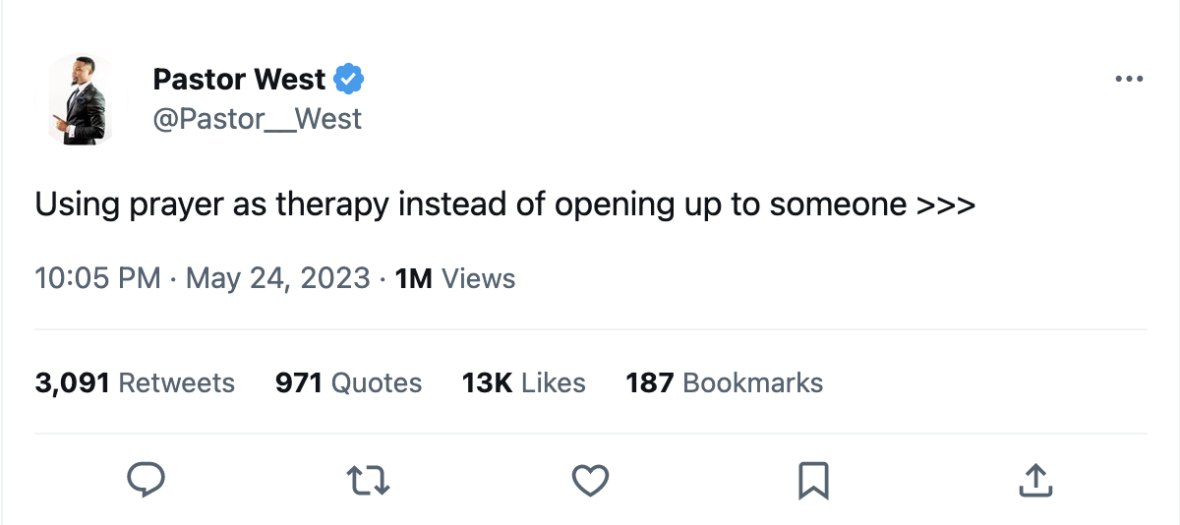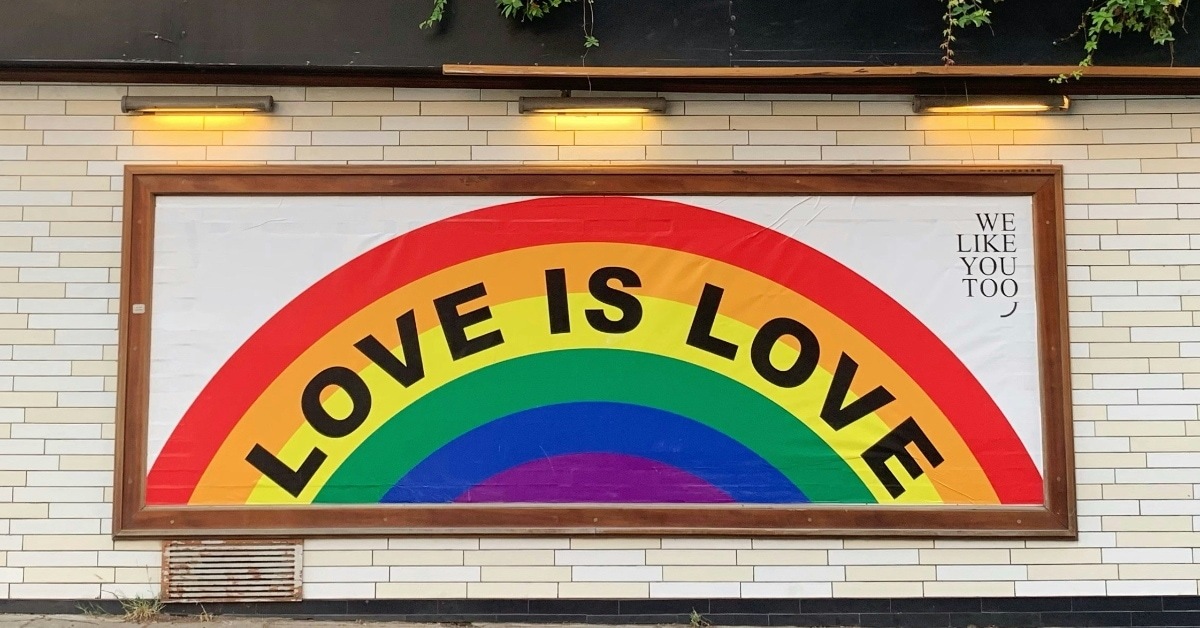Notes on faith: Jesus is on the mainline — and so is your therapist
You can have Jesus and your counselor too; Rev. Dr. Alisha Lola Jones and Rev. Calvin Taylor Skinner discuss finding The post Notes on faith: Jesus is on the mainline — and so is your therapist appeared first on TheGrio.

You can have Jesus and your counselor too; Rev. Dr. Alisha Lola Jones and Rev. Calvin Taylor Skinner discuss finding harmony between the divine and the therapeutic.
“Notes on faith” is theGrio’s inspirational, interdenominational series featuring Black thought leaders across faiths.
Recognizing Memorial Day and May as Mental Health Awareness Month, a recent episode of TheGrio’s “Dear Culture” podcast featured host Panama Jackson conversing with Tonya Oxendine and Wil Williamson of the Wounded Warrior Project to discuss veterans’ mental health. The trio agreed there is a particular intraracial resistance in the African diaspora to pursuing professional counseling services.
“If you can’t pray it away, [Black people] don’t want no parts of it, usually,” Jackson commented. “We are not big on therapy — or if God ain’t your therapists, then get them off the line.”
“Yooooo…give me God and a counselor,” we thought. “Jesus better be on the mainline WITH my healthcare professional.”

The crucial quest to achieve and maintain wellness
The podcast’s commentary called us into a conversation about maintaining a faith enhanced by therapy. We have to admit Panama was spot on when he talked about the prevalent intracultural attitudes toward mental wellness he saw while growing up. Our people have faced systemic and societal barriers throughout history, making it difficult to conceive of, achieve, and maintain solid wellness practices that heal our minds, bodies, and souls.
With one in four American adults dealing with a diagnosable mental issue, this is a common issue in our society — and arguably, an underlying cause of myriad health issues African Americans disproportionately face is due to mismanagement of stress and trauma. According to the American Psychological Association, we are 20% more likely to report serious psychological distress than our white counterparts. Yet, among Black Americans, only 25% seek mental health treatment.
Several factors contribute to that lack of engagement, such as a pervasive lack of access to resources. However, what cannot be ignored is that stress and trauma mismanagement is detrimental to the average person, let alone those of us who are marginalized or need targeted attention.
Instead, many of us have relied on hiding behind a facade, but dressing in our Sunday best when we feel a mess doesn’t cut it. We are in crisis, family. Prayer is a balm, but it is also a primer for more profound work. Attitudes within our religious circles that entirely reject professional mental healthcare as a spiritual practice are dangerous.
As married, trained theologians who both grew up as pastors’ children, we have firsthand experience with fellow faith leaders who avoid discussing mental health or seeking psychological help out of fear of being perceived as inadequate or improper spiritual leadership. However, whether in the pews or the secular world, attunement to those needs can save lives.
A conversation about ascertaining what stress and grief look like is one we need to have, as evidenced by the responses to a recent tweet by Pastor West of Baltimore’s Faith Empowered Ministries, in which he seemed to encourage “using prayer as therapy instead of opening up to someone.”

Although some comments endorsed the rejection of therapy in favor of prayer, it was refreshing to see many commenters acknowledge that we can benefit from “Jesus and a therapist too.” That engagement reveals there may be a significant and long overdue shift towards embracing faith and therapy as companions.
“The Black Church” has long functioned as our clearinghouse for the African-American community’s issues. Accordingly, that institution must be where we focus our attention on building a new type of sanctuary within — and when we take a closer look, models of prayer working in tandem with therapy already exist.
Heeding the call to fill a need
Imagine the Black Church getting past the stigma of mental health services and becoming critical in creating a pipeline for developing faith-centered holistic counseling. “By engaging in open and honest communication with the therapist,” Cheryl A. Clarke, a licensed marriage and family therapist, reminds us, “individuals can ensure that their faith is honored and integrated appropriately within the therapeutic process.”
To be sure, prayer is an essential aspect of one’s spiritual life — it can be a catchall phrase for meditation, contemplation, silence, and other centering practices. When understood correctly, prayer enhances our connection to the Divine through listening more than merely speaking. In that time of introspection and stillness, the personal homework provided in therapy can take hold.
In this Mental Health Awareness Month — and for life — our desire is for our people to embrace both a robust prayer life and the option of mental health therapy to achieve optimum holistic well-being. May we be patient and diligent as we walk alongside our family, friends, and community who desire help — and may we encourage them to find it wherever they need to.
If you or someone you know is in crisis in the US, call 988, text 741741, or visit www.speakingofsuicide.com/resources/ for additional resources.
TheGrio is FREE on your TV via Apple TV, Amazon Fire, Roku, and Android TV. TheGrio’s Black Podcast Network is free too. Download theGrio mobile apps today! Listen to ‘Writing Black‘ with Maiysha Kai.
The post Notes on faith: Jesus is on the mainline — and so is your therapist appeared first on TheGrio.












